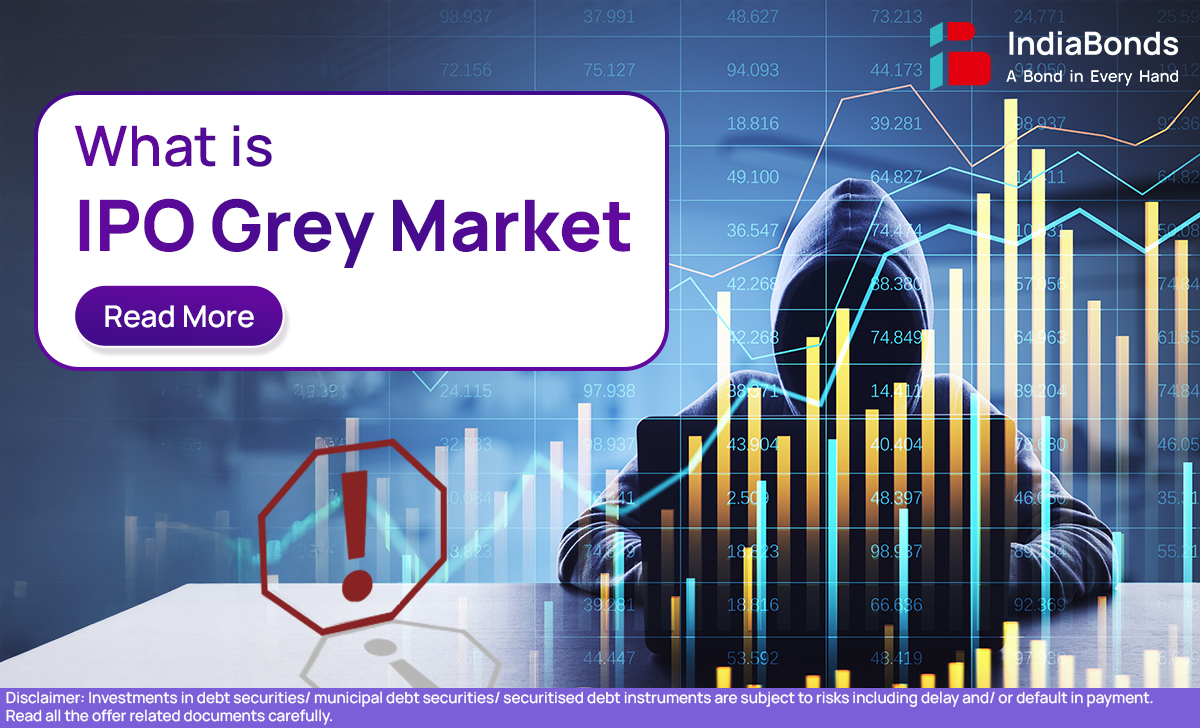What is IPO Grey Market

When a new IPO hits the market, the excitement is real. But did you know there’s a parallel market where shares change hands even before they’re officially listed? This unofficial and largely unregulated space is called the Grey Market. It’s where IPO shares are bought and sold before they become available to the public — and yes, it’s as intriguing as it sounds.
If you’ve ever wondered what is grey market, or heard terms like GMP floating around in IPO discussions, this blog will walk you through everything you need to know — in a simple, relatable way.
What is Grey Market?
The grey market is a kind of informal marketplace where trading happens outside of the official stock exchanges. It isn’t illegal, but it’s also not regulated by SEBI or any recognized exchange in India.
In the context of IPOs, the grey market becomes active a few days before the company is officially listed. Here, potential buyers and sellers agree on a price based on speculation, demand, and buzz. And that brings us to a term you’ve probably heard often — GMP for IPO.
What is Grey Market and How Does it Work?
Let’s break it down.
Say a company announces its IPO, and the price band is ₹100-₹110 per share. Now, based on investor sentiment and market chatter, people may be willing to pay ₹130 even before it gets listed. That ₹20 extra is what we call the Grey Market Premium (GMP).
Here’s how it typically works:
- Dealers or brokers act as middlemen.
- Interested buyers offer a premium above the IPO price.
- Sellers (usually people who have applied for the IPO) agree to sell their allotment at that premium post-listing.
Even though it’s outside the formal system, it gives early signals of how the stock might perform post-listing.
GMP for IPO: Why It Matters
GMP for IPO is the buzz meter.
It’s not a guarantee, but it gives investors an idea of how the IPO is being perceived in the market. A high GMP usually suggests strong demand, while a negative or zero GMP could signal weak interest.
Let’s take a quick example:
- IPO Price: ₹150
- Grey Market Premium: ₹40
- Expected Listing Price: ₹190
While this doesn’t always play out as predicted, the GMP can often reflect investor sentiment more accurately than official reports.
What is Grey Market Stock?
The term “What is Grey Market Stock?” refers to shares that are traded before their official listing. These shares haven’t been credited to the demat accounts yet, but deals are made based on allotment expectations.
These trades happen on mutual trust. Once the shares are listed and allotted, the seller is expected to deliver them as agreed. That’s why the grey market functions strongly on reputation.
What is Grey Market Premium?
The grey market premium (GMP) is the extra amount investors are ready to pay over the IPO price in the unofficial market. It changes daily, even hourly, based on market buzz, investor mood, and expected listing gains.
But remember, what is grey market premium also comes with risk — just like any market speculation. If the actual listing price is lower than the GMP suggested, you might end up overpaying.
Types of Trading in Grey Market
There are mainly two types of trades in the grey market:
- GMP Deals
- You agree to buy/sell IPO shares at a premium (GMP).
- The buyer pays the premium upfront; balance after listing.
2. Kostak Deals
- This is a fixed-price deal where an investor sells the right to apply for the IPO.
- Common among those who apply through multiple accounts.
How are IPO Shares Traded in the Grey Market?
Here’s a simple breakdown:
- You apply for an IPO.
- A dealer approaches you with a GMP offer.
- You agree to sell your allotment at the agreed GMP if you get allotted.
- After listing, you transfer the shares, and the dealer pays you the remaining amount.
It’s mostly verbal, trust-based, and handled by seasoned grey market dealers. There are no receipts or contracts — which also means there’s no legal protection if something goes wrong.
FAQs:
1. Is it okay to buy from grey market?
It’s not illegal, but it’s unregulated. There are risks involved since it’s based purely on trust and has no legal backing.
2. What is the grey market of IPO?
It’s an unofficial market where IPO shares are bought/sold before they’re listed on stock exchanges.
3. What is meant by the grey market?
A trading zone outside the formal market, where securities are exchanged unofficially.
4. How to buy IPO from gray market?
You’ll need to go through grey market dealers who connect buyers and sellers. But remember, there’s no official platform — and that brings its own risks.
Final Thoughts
The IPO Grey Market is like the backstage of a theatre performance — where all the prep and buzz begins. It’s exciting, fast-moving, and full of speculation. But as with all investments, it’s important to be informed and cautious.
Understanding grey market in India can help you make smarter decisions — whether you’re applying for IPOs, tracking GMP trends, or simply trying to stay one step ahead of the crowd.
So, next time someone talks about “GMP for IPO,” you’ll not only know what it means — you’ll know exactly how the show begins before the curtain even rises.
Disclaimer : Investments in debt securities/ municipal debt securities/ securitised debt instruments are subject to risks including delay and/ or default in payment. Read all the offer related documents carefully.
































